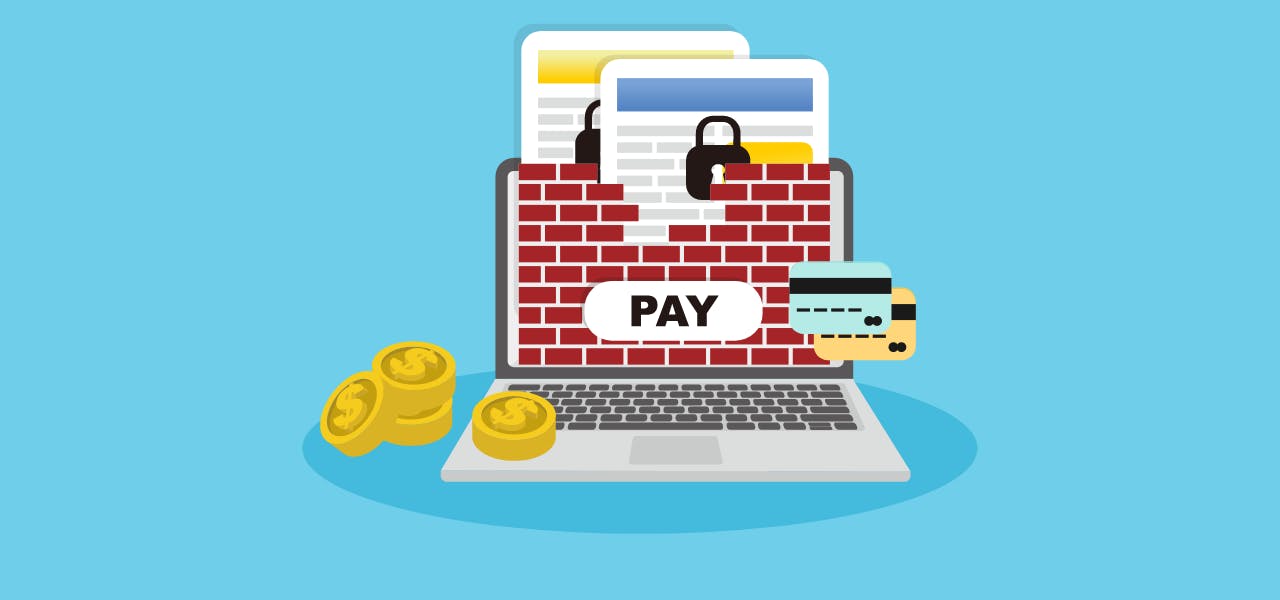The Digital Era has brought with it significant changes to every industry around the world. There’s not a crack or crevice in business that hasn’t been affected, including the academic publishing field. The evolution of publishing has shifted as people get used to providing simple demographics like entering their email addresses to obtain access to information they want or paying for content through paywalls.
Publishing companies have used and discarded paywalls over the years as a means of getting readership. There are advantages and disadvantages to using this method to entice readers to purchase an article and build a subscription base for a publisher. Users are used to seeing paywalls in action and if they want the content badly enough, they’re willing to pay to access it. But there are problems inherent with paywalls that make them contested across the publishing field.
What is a Paywall?
The entire development and dissemination of science rely on knowledge and the ability for people to share it amongst each other in an open, structured, legitimate, and reputable format. This is a simple process when it comes to academic journals and magazines in which a strict, rigorous method of article selection and peer review is performed prior to publication. But not every article on the internet goes through this process.
Some of these more reputable publishers understand that people are willing to pay to access content that they know is legitimate, and they charge significantly for the subscriptions to their journals. While they make a hefty profit on these subscriptions, their readership is limited because so few can afford to pay the premiums. Once the publishers have done the work of creating the magazine or journal, everything that remains is a profit. The research is done by the scholar and paid for by the grant or funder, publishers in the academic field don’t pay the authors for their work, and peer reviewer payments are not typically funded by the publishing company either. Everything is profit.
This system was in place for decades before the Digital Era stepped in and offered knowledge to everyone for free. Publishers adjusted their policies and created electronic options for their prestigious journals and articles to be accessed online through paywalls.
Paywalls are exactly what they sound like: a metaphorical wall that must be overcome before a user can gain access to the content they need. For publications, this is usually a one-time purchase option where the reader can buy the article they’re interested in, or it could be a subscription for a pre-determined length of time, such as six months or one year.
All of these subscriptions and purchases are done through a paywall are profit once the publishing company pays the overhead for their domain, archiving, and other basic expenses.
Understanding Paywalls Versus Open Access
Academic journal paywalls are commonplace, but the Open Access (OA) movement is underway to change this. The OA movement consists of a group of people around the world who work together to attempt to make any type of scholastic literature available for free to everyone interested in learning about it through online access.
In OA forums, researchers submit the unpublished versions of their papers directly to a repository that focuses on that subject specifically or to an academic institution that is charged with archiving the subject.
Publishing companies have had to compromise in order to combat the OA movement and still make a profit. To do this, many publishers include journals submitted in open access avenues on their sites, but they require the author or institution behind the research to pay an article-processing charge, or APC before the work can be published in conjunction with the journal’s name. Even though this APC is often hefty, the prestige of having one’s research associated with a legitimate publishing company is a return on investment that many scholars don’t mind paying. It’s a work in progress as the open access movement continues to strive towards free knowledge for all.
